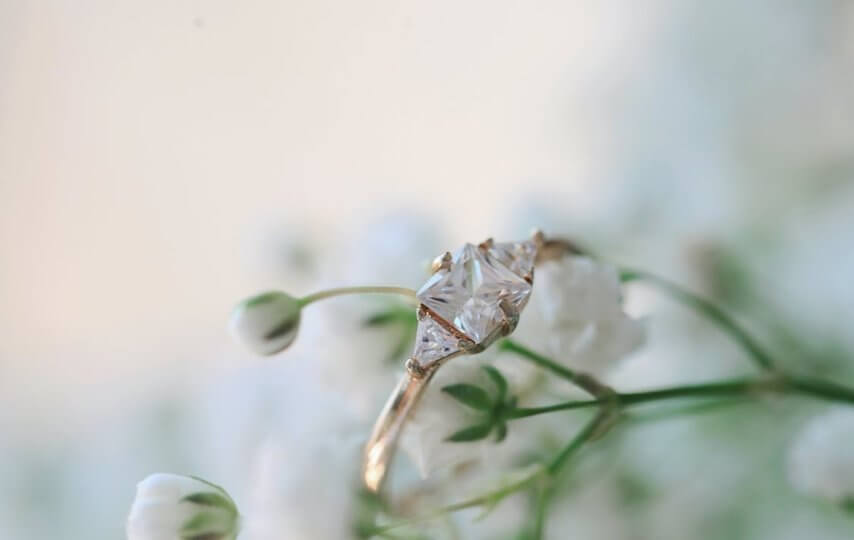Traditionally, it’s the man who offers a woman an engagement ring as a present usually, by the time he proposes marriage or after his proposal is accepted. That means a woman wearing an engagement ring is getting married soon.
It might be a small piece of a gift, but it symbolises love, commitment and acceptance of a life-changing marriage proposal. It’s no wonder why most men take the engagement ring hunting or shopping very seriously.
Even if you’re already wearing a ring on your finger or planning to propose to your partner sooner, you must know the parts of an engagement ring. Being aware of the engagement ring’s anatomy helps in ring shopping and determining if it already needs professional care.
With that, here’s our article to show you the different parts of an engagement ring. So, take a look at the next few pages and find out for yourself.
Why is it important to know the different parts of an engagement ring?
Once you know the anatomy of an engagement ring, it doesn’t only add up to your confidence, but will also help you find out if your engagement ring already needs professional care from the ring expert.
Aside from that, having enough knowledge about the engagement ring parts might make your future engagement ring hunt easier and faster.
So, before your step outside to shop for an engagement ring or before you neglect to maintain your ring’s durability, you might want to read through the pages first.
- Gallery
The gallery is the underside of an engagement ring found below the centre stone. This part supports the structural stability of the entire engagement ring. You may see the gallery from the side as you look at the ring where the diamond or the gemstone is.
- Halo
Halo engagement rings have been prominent so you might know this. The term “halo” points out the stones that are encircling the centre stone.
It may be in different shapes and may have a variety of cuts of stones. Also, an engagement ring might have multiple halos.
- Head
The engagement ring won’t be alluring or appealing without a diamond or a gemstone of your choice. Thanks to the head, another part of an engagement ring, for holding the diamond or gemstone.
Engagement rings usually have pronged heads. The prongs are the tiny claw-like metals that hold the stones into place.
- Mount
The mount signifies the entirety of an engagement ring without its stone. The ring mounting or ring setting displays the setting of the centre stone and the other ring designs.
- Shank
Every engagement ring has a shank. There will be no engagement ring without this part. It’s a technical word for the band of metal that surrounds the ring finger.
When buying an engagement ring, you must know the exact size of the finger to get the best and proper fit of the shank or the ring band.
- Shoulder
Next on the list is the shoulder, a term that describes the sides of the ring setting or mount. The shoulder leads up to the head and set with a diamond or a gemstone of your choice.
- Side stones
Aside from the main attraction in an engagement ring, which is the centre stone, other engagement rings have side stones. The side stones are any diamond or gemstone in an engagement ring that borders the centre stone.
There you have the anatomy of an engagement ring! If this article sounds helpful, don’t forget to share it with your family and friends too, okay?
AUTHOR BIO:
Kath Ramirez embraced the dream of being a writer since she was in 4th grade. She took it seriously and she now writes for Musson Jewellers, an award-winning provider of the finest jewellery not only in Sydney but all over the world. Aside from writing, Kath also keeps herself busy spending time with her family, cherishing the role of a dog mum, reading random books, and diving into the world of photography. She’s not even a pro at whatever she’s engaged in right now, but one thing she knows, she’s happy and that’s more than enough.













